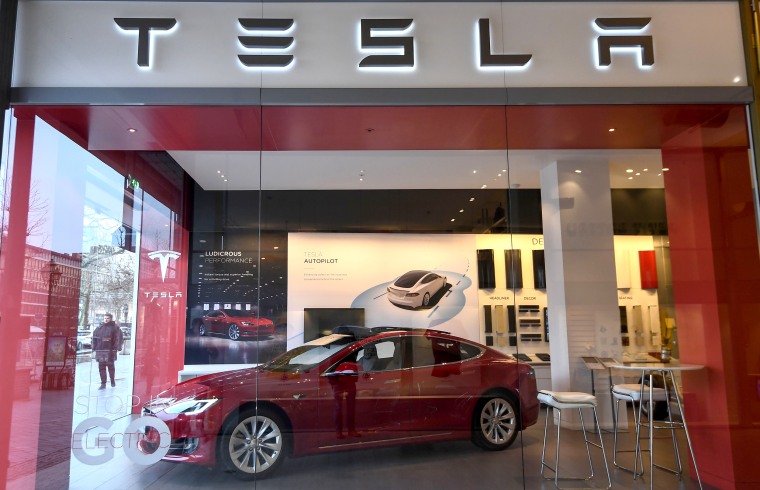
Tesla Inc. plans to invest $5 billion building a factory in China as the trade war with the U.S. makes establishing production in the world’s fastest-growing auto market more imperative for the electric-car pioneer, a person familiar with the matter said.
The company is considering raising funds in China to finance at least a portion of the investment for the plant, said the person, who asked not to be identified as the plans are private. Tesla agreed last month to build the factory near Shanghai, and it expects to start producing its new Model 3 vehicle there by 2020, the person said.
Securing a factory in China became more crucial for Tesla after the nation imposed a 25% additional tariff on imports of U.S.-made cars in retaliation for President Donald Trump’s levies on $34 billion of Chinese goods. China is the world’s biggest market for electric cars and the second-largest market for Tesla, trailing only the U.S.
The California-based company didn’t respond to an email seeking confirmation of the plans, and a spokeswoman for Tesla in China didn’t return phone calls.
Chinese Rivals
China’s ambition to boost annual sales of new-energy vehicles tenfold by 2025 has encouraged hundreds of automakers to produce electric vehicles in the country. Backed by investments from local governments, tech entrepreneurs and venture-capital firms, Chinese EV startups are trying to capture the market before Tesla increases its presence.
Tesla didn’t provide details on how much the factory would cost when it announced a preliminary agreement with the Shanghai government last month for what is set to be the first production facility in China wholly owned by a foreign carmaker. Analysts at Bloomberg Intelligence estimate that the required investment could be about $10 billion, double what Tesla is said to be planning.
Led by billionaire Elon Musk, Tesla has been burning through billions of dollars as it ramps up production and struggles to become profitable. The company had $2.7 billion of cash at the end of the first quarter.
Musk has ruled out the need to sell new shares or bonds this year, insisting that Tesla will be able to fund itself as it manufactures more Model 3 sedans. The company is scheduled to report quarterly earnings on Wednesday.
Other automakers are also looking to double down in China after the tariff hit, which doesn’t apply to cars made locally by foreign brands. BMW AG also centers a lot of its production in the U.S. and is poised to become the first foreign manufacturer to own majority control of a Chinese car venture.


0 Comments